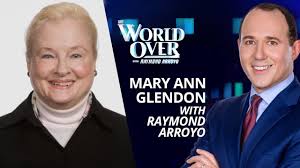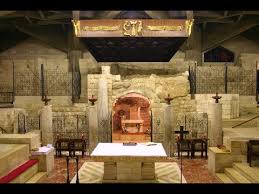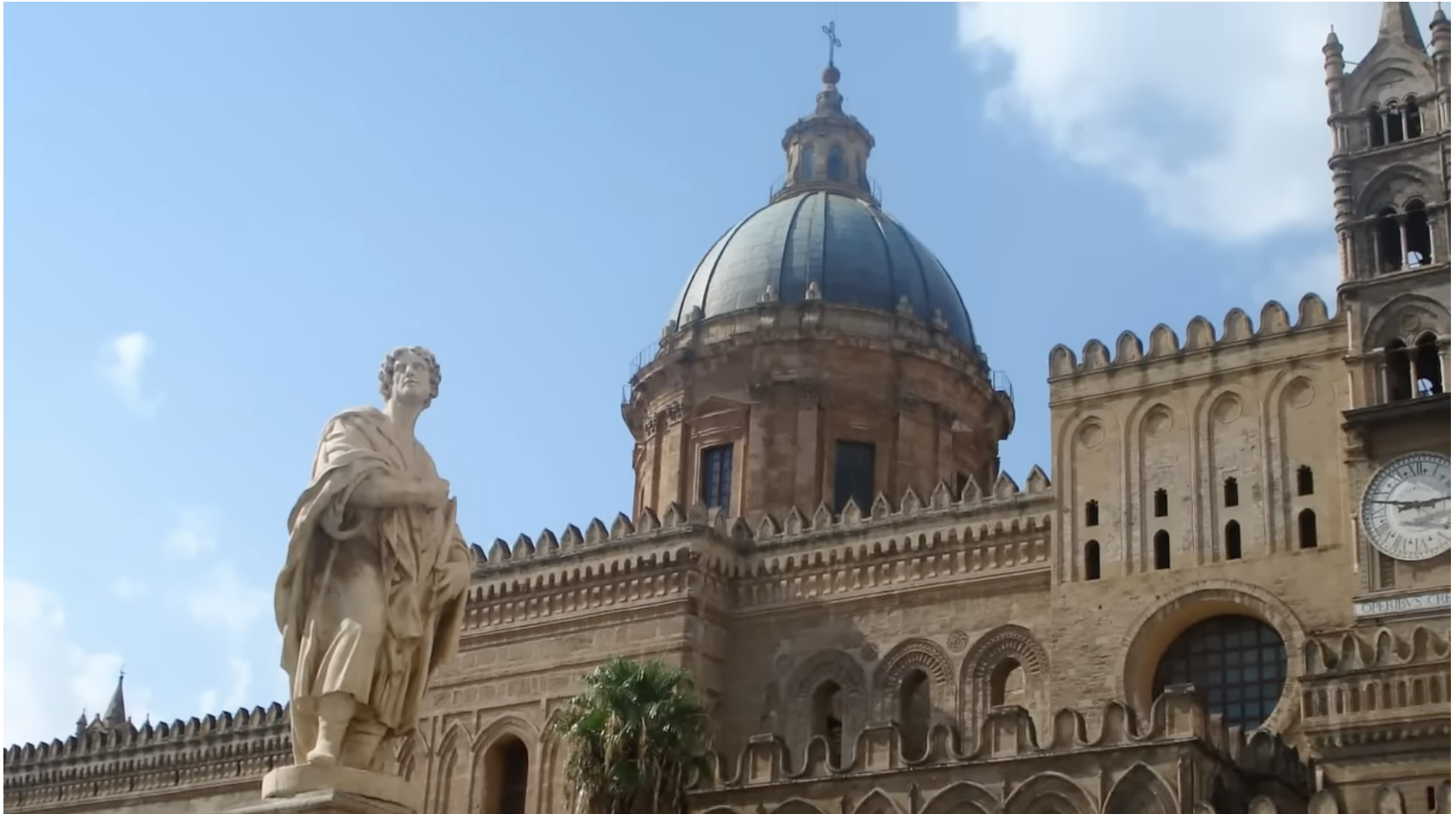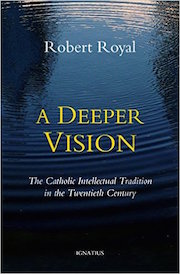Let’s start with a fun quiz. Who said the following words?
The insanity of the Christian doctrine of redemption really doesn’t fit at all into our time. Nevertheless there are learned, educated men occupying high positions in public life, who cling to it with the faith of a child. It is simply incomprehensible how anybody can consider the Christian doctrine of redemption as a guide for the difficult life of today. . . .Whereas the most learned and wisest scientists struggle for a whole lifetime to study but one of the laws of nature, a little [rural priest] is in a position to decide this matter on the basis of his religious knowledge. One can regard such a disgusting performance only with disdain. A church that does not keep up with modern scientific knowledge is doomed.
Sound familiar? It should. Surely they’re the words of a celebrity atheist like Richard Dawkins, or Sam Harris, or Daniel Dennett? Or maybe they belong to a member of today’s Harvard or Yale professoriate? They’re both very plausible options. And they’re both wrong.
Try Nazi propagandist Joseph Goebbels. He scratched those words in his diary in the 1930s.
Yes, I know, America 2024 is a very long way from Germany in the 1930s. And yes, of course, what happened there can’t happen here. History never repeats itself. But it doesn’t need to, because the patterns of human thought and behavior that make history repeat themselves all the time.
We already live in a surveillance state. In China, it’s state policy. Here, it’s a shared community project. Our version is more subtle than its ugly precedents, but it’s also more pervasive and thorough. We strengthen it every time we sign away our privacy by downloading a new phone or computer app.
And it’s worth remembering that, not so long ago, an FBI goon squad raided the home of an innocent pro-life family man – Mark Houck – on a bogus assault charge for which he’d already been acquitted locally and was promptly acquitted again in federal court. Bullying is now the go-to methodology of our “enlightened” leadership class.
But where am I going with this?
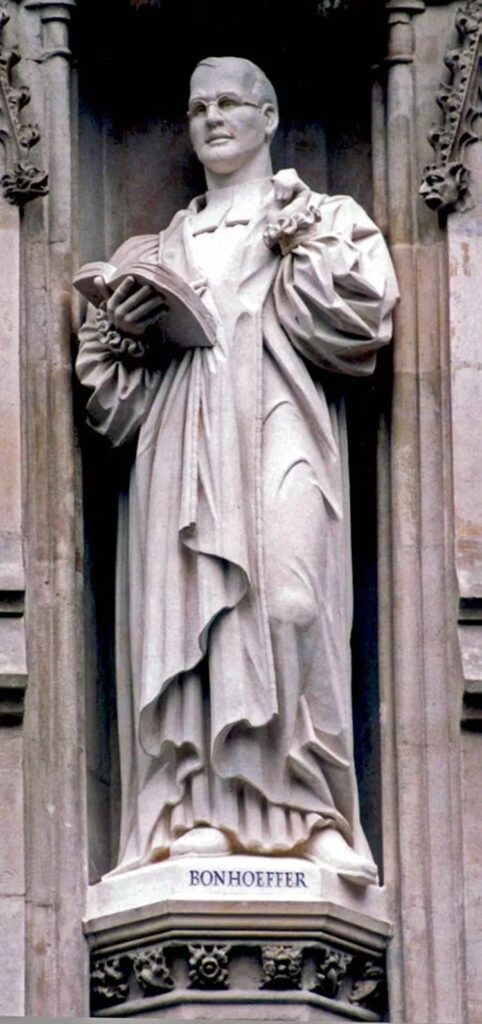
This Spring marks the 90th anniversary of the Barmen Declaration. If that triggers blank stares, it’s understandable. We Americans tend to be bad at history, especially when it involves events beyond our borders. So here’s the background: In May 1934, the German (Protestant) Pastors’ Emergency League held a synod in the city of Barmen. From it emerged the Declaration. Drafted largely by the theologian Karl Barth, it was a sharp repudiation of German Christian efforts to embrace and affirm National Socialism.
Today much of the declaration, though powerfully written, will seem irrelevant to American Catholics. Our circumstances are vastly different from the German Protestant crisis of nearly a century ago. But the Barmen text also marked the birth of Germany’s “Confessing Church” movement, cofounded and passionately advanced by Dietrich Bonhoeffer. And therein lies a lesson that transcends time and borders.
The word “confess” has several applications. We confess our sins, but we also confess our faith in Jesus Christ and his Church. In Baptism, Christians are made “confessors” by nature. It’s our vocation. We’re meant to witness, or confess, our faith through the example of our lives; in what we say and in what we do.
In 1933, the Vatican signed a Concordat with the Third Reich protecting (in theory) German Catholic believers and interests. By 1934, the Nazis were already violating it. The point of the 1934 Barmen Declaration, and of Germany’s “Confessing Church,” was to offer a forceful counter-witness to the Nazification of the nation’s official Evangelical Lutheran Church and other Protestant communities. Bonhoeffer’s role in the Confessing Church led him, eventually, into outright resistance to the Nazi regime and his execution by hanging just weeks before the end of World War II.
We live in a different time with different challenges. But maybe not so different as we might think. In the nearly three years I worked on my book True Confessions (published yesterday), I found an enormous amount of goodwill, zeal, and hope among faithful American Catholics.
But the key word in that sentence is faithful. Claiming to be Catholic while obediently conforming our lives to a culture that disdains God’s Word and violates our faith is simply a convenient way of lying to ourselves and everyone else. It’s a useful anesthetic for the conscience.
But God isn’t fooled. We need to remember who we are, who we serve, and why we’re here as Christians. We need to be confessors of Jesus Christ and his Church. All day, every day. In everything.
As one senior bishop told me in the course of my interviews:
I grew up in an extraordinarily warm, liberating Catholic culture. That’s gone. We can no longer count on the culture to support a Christian life. What we’ve got now in our country is, at best, a tolerance of religion as a personal hobby for superstitious weak people who cling to their childhood dreams. At worst, more and more, we’re dealing with a real hatred, an outright bigotry, toward religious faith. Which is ironic, because there’s never been a progressive reform movement in American history that wasn’t birthed by religion. We’re almost back in the days of the French Revolution. We have a gang of juiced-up Jacobins running society who really think the government should control everything. . . .I never thought I’d put the prayer of St. Michael the Archangel on my medicine cabinet mirror. But I did. Now I pray it every morning when I shave. There is utter, raw evil in the world, and it’s the strongest force in the universe. Save one.
Dietrich Bonhoeffer was right. His world needed a Confessing Church, and he was willing to risk his life for it. Times have changed. Circumstances have changed. But the need hasn’t.
The lesson is simple: We need to be Confessing Christians. And we need a Confessing Church.


